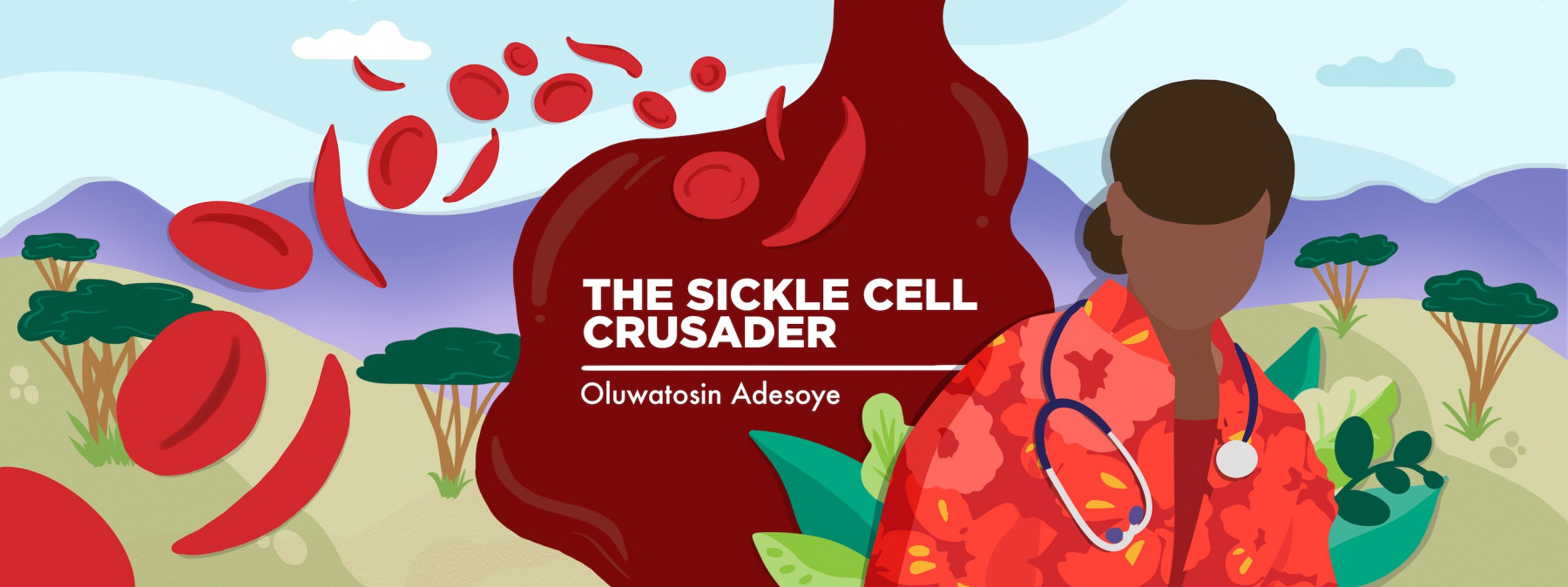Relationship ‘red flags’ I watch out for as someone with sickle cell, Part 1
Advice for sickle cell warriors pursuing a romantic relationship
Written by |

First in a series.
Love and relationships can significantly affect the lives of people with sickle cell disease. A good relationship can contribute to improved mental and physical health, while a bad relationship may lead to the opposite. Unfortunately, finding love can be challenging for people with sickle cell, especially in regions with extreme stigmatization around the disease, like mine.
Here in Nigeria, for example, many people believe that those of us with sickle cell will die soon, which leads to them avoiding relationships with us.
As someone who has lived with sickle cell for almost 37 years, I’ve had my fair share of relationships and have learned a great deal from these experiences. Following are some of the red flags I watch out for while dating with sickle cell.
One of my first red flags is a partner who doesn’t have a mind of their own. Many African parents are against their children marrying someone with sickle cell disease due to our widespread stigmas and misconceptions. In African culture, parental blessings in marriage are taken seriously, so dating a sickle cell warrior often requires someone to have a mind of their own, as they might need to either change their parents’ minds or go against their parents’ wishes. If a partner is unable to stand up to their parents, they may not be a good fit for someone with sickle cell disease.
Another warning sign is a selfish partner. During a crisis, a person with sickle cell may not be able to cook, go out, or engage in sexual activity. A selfish partner might pressure the person with sickle cell to do these activities even when they’re sick, which can worsen their health. In addition, a partner who takes offense when someone’s health won’t let them do these things is also not a good fit.
A violent partner should be a major red flag for anyone, but it can be especially dangerous for someone with sickle cell disease. Domestic abuse can be fatal, and abuse that’s present in a relationship is likely to only escalate in marriage. It’s essential to do whatever you can to leave a violent partner. Don’t assume you can change them.
It’s also a bad sign if someone frequently compares their partner with others. This behavior often indicates that the person will never be satisfied, which can lead to feelings of inadequacy and sadness and ultimately create a toxic relationship.
Finally, a partner who thinks they’re doing someone a favor by being with them is another significant red flag. Living with sickle cell disease brings challenges, but it doesn’t make anyone a lesser human. Partners shouldn’t make each other feel inferior.
As sickle cell warriors, it’s essential to avoid begging or forcing someone to be with us. Instead, a partner should love us for who we are, including our challenges and struggles. We must love ourselves enough to know we deserve better, and we can’t give anyone the chance to destroy our self-esteem.
I want to emphasize that people with sickle cell disease deserve love, respect, and understanding, just like everyone else. It’s crucial to avoid stigmatizing people based on a medical condition and to see them as individuals with unique personalities, talents, and abilities. With advancements in medical treatments and care, many people with sickle cell now live long and fulfilling lives. We shouldn’t be limited by the misconceptions surrounding our condition.
In conclusion, let’s all strive to be more accepting and supportive of sickle cell patients and to challenge the negative attitudes and beliefs that persist. Love knows no boundaries, and everyone deserves to find happiness and fulfillment in their relationships.
Remember to check back for my next column, where I’ll discuss more relationship red flags and the importance of identifying them.
Note: Sickle Cell Disease News is strictly a news and information website about the disease. It does not provide medical advice, diagnosis, or treatment. This content is not intended to be a substitute for professional medical advice, diagnosis, or treatment. Always seek the advice of your physician or other qualified health provider with any questions you may have regarding a medical condition. Never disregard professional medical advice or delay in seeking it because of something you have read on this website. The opinions expressed in this column are not those of Sickle Cell Disease News or its parent company, Bionews, and are intended to spark discussion about issues pertaining to sickle cell disease.




Leave a comment
Fill in the required fields to post. Your email address will not be published.